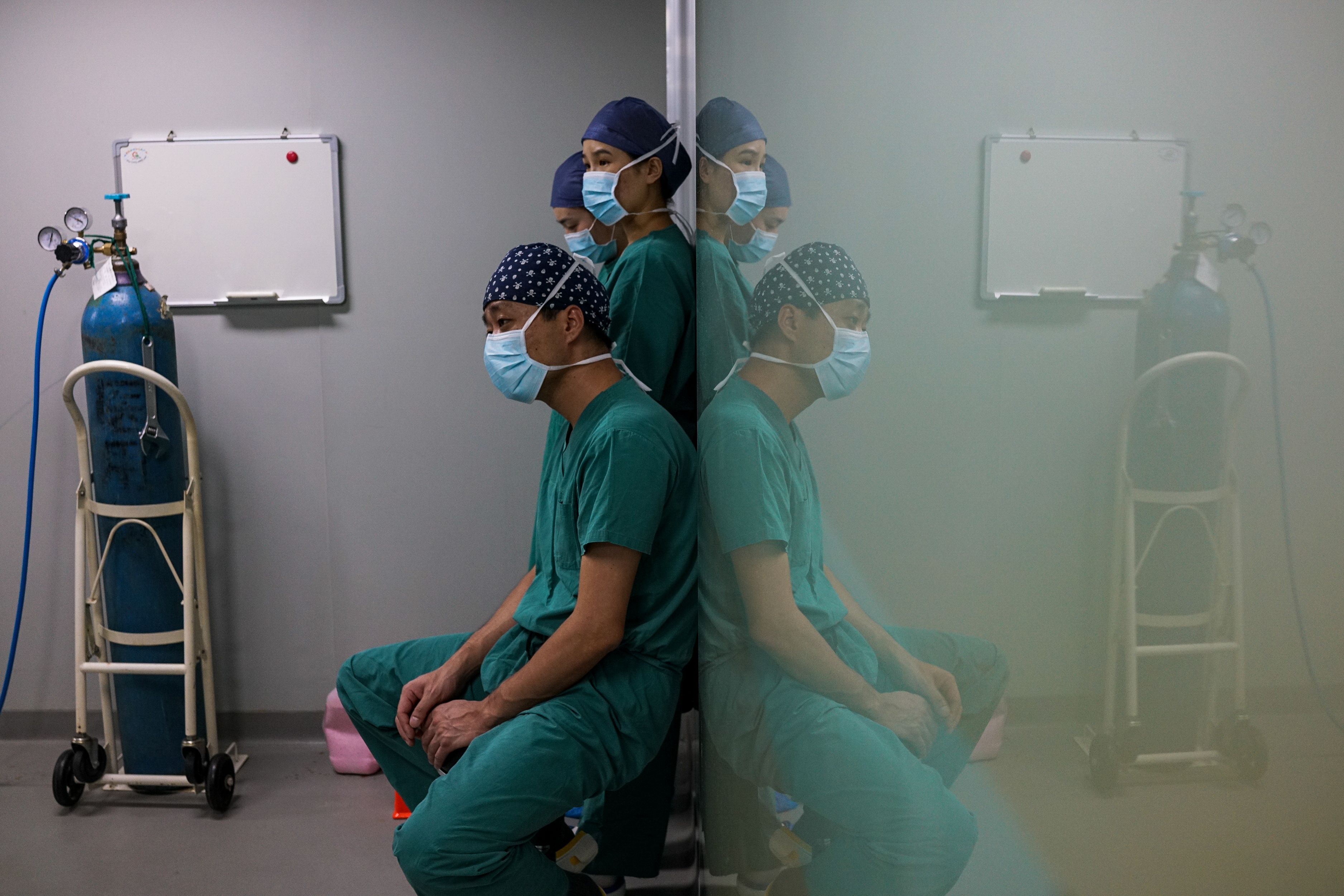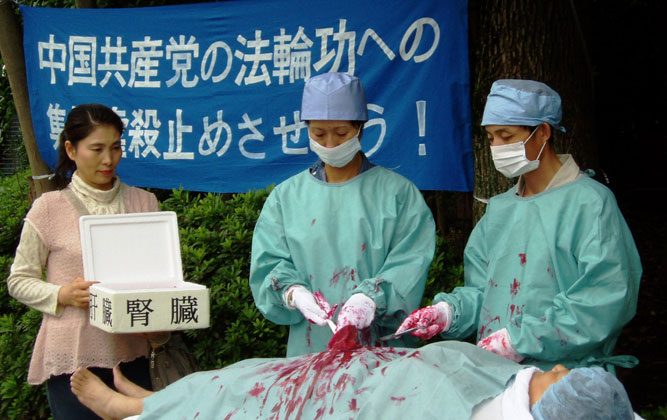Vatican Condemned for Lending Credibility to Chinese Regime’s Claims of Organ Transplant Reform
March 21, 2018 6:24 pm

A mass for the Saint Joseph feast in St. Peter Basilica at the Vatican on March 19, 2018. (Andreas Solaro/AFP/Getty Images)
In a move condemned by a transplant ethics group, the Vatican has granted legitimacy to China’s organ transplant system by inviting the head of the Chinese communist regime’s official transplant registry to speak at a Vatican panel earlier this month.
For the past two decades, patients in desperate need of an organ transplant have traveled to China for surgery, where they report being able to procure a matching organ within days, weeks, or months—far shorter than the waiting period in their home countries based on organ donations.
Through extensive investigations conducted by human rights lawyer David Matas and former Canadian secretary of state for Asia-Pacific, David Kilgour, evidence emerged that the Chinese regime harvests organs from prisoners of conscience. Their research indicates that most of the prisoners, who are killed in the process, are adherents of the Falun Gong spiritual practice, a meditation-based discipline that has been severely suppressed by the Chinese regime since 1999.

International condemnation prompted the Chinese regime to establish a national voluntary organ donation system, called the China Organ Transplant Response System (COTRS), in 2013, which the state claims is the only means by which it distributes donated organs. In 2015, the regime also announced that it no longer obtained organs from executed prisoners.
These claims of reforms appeared to have appeased the Vatican enough so that it invited the head of the COTRS, Wang Haibo, to speak at a conference hosted by the Pontifical Academy of Sciences on March 12. The theme was “Modern Slavery, Human Trafficking, and Access to Justice for the Poor and Vulnerable.”
However, the Chinese regime has yet to enact new regulations or laws expressly prohibiting the procurement of organs from prisoners. Meanwhile, reports of organ transplants performed in China without transparency regarding sourcing—and with matching organs found within days and weeks—continue unabated.
China’s official organ donation data also lacks transparency, raising further concerns that the regime’s claims of reforms are not credible, according to a letter drafted by members of the International Coalition to End Transplant Abuse in China, a group of medical professionals, academics, lawyers, and human rights advocates who seek to end the practice of forced organ harvesting in China.
Their open letter to the Vatican was published on March 19, where they highlighted discrepancies and flaws in the regime’s data reporting. They called on the Pontifical Academy of Sciences, which had organized a conference on organ trafficking in 2017, “to reserve its judgement about claims of total reform of China’s transplant system.”

The Coalition noted that the regime has 12 different official databases for transplant activity, none of which are accessible to the public. Meanwhile, the COTRS only provides a total number of donated organs and donors, without any breakdown by hospital, locality, or time period—making it impossible to confirm the veracity of the numbers, according to the letter.
Medical ethics require public access to organ transplant databases, such as the United Network for Organ Sharing (UNOS) in the United States, according to human rights expert and Coalition member Louisa Greve. The U.S. database provides data on every organ donation and transplant since October 1, 1987, with medical data on organ donors, recipients, and candidates who are on the national waiting list, according to the UNOS website.
Barring that kind of transparency in China’s organ transplant data, “it’s irresponsible for international organizations to accept reform claims by an authoritarian government with a completely opaque organ-procurement system,” said Greve in an email interview. She called on the Pontifical Academy, the World Health Organization (WHO), and the Transplantation Society to withhold cooperation with the Chinese regime until it can provide such data.
The Chinese regime has continually refused to acknowledge the procurement of organs from prisoners of conscience, who are often sentenced outside of judicial proceedings.
In a March 14 interview with Italian newspaper La Stampa, Wang claimed that China allows for religious freedom, and does not procure organs from “political prisoners.” “There is no capital punishment for political prisoners,” Wang said.
Despite the regime’s 2015 claim that it stopped taking organs from executed prisoners, the medical community remains concerned about unethical organ transplant practices in China. In several medical journals, including the American Journal of Transplantation and the Journal of Medical Ethics, doctors have called for a ban on working with transplant doctors in China until reforms can be independently verified.
“Recent reports have discussed an implausible discrepancy of officially reported steady annual transplant numbers and a steep expansion of the transplant infrastructure in China,” read an August 2016 article in the American Journal of Transplantation. “Until we have independent and objective evidence of a complete cessation of unethical organ procurement from prisoners, the medical community has a professional responsibility to maintain the academic embargo on Chinese transplant professionals.”
The Congressional-Executive Commission on China, a U.S. governmental agency that monitors human rights in China, released its annual report in October 2017, where it noted that the medical community were troubled by reports that “numerous organ transplants in China have used the organs of detained prisoners, including Falun Gong practitioners,” and were “skeptical of a Chinese health official’s claims that organ procurement systems have been reformed in compliance with international standards.”

No comments:
Post a Comment
Comments always welcome!